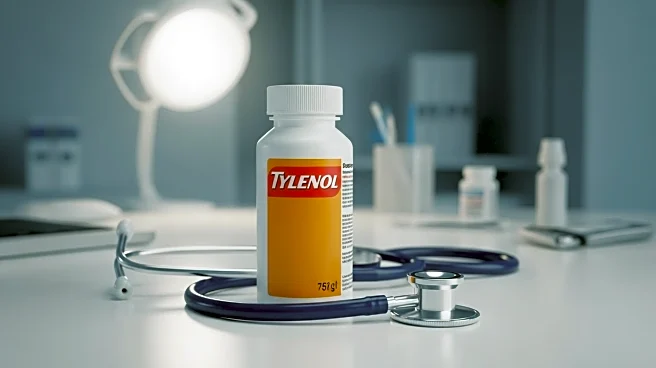What's Happening?
President Trump's recent announcement linking Tylenol use during pregnancy to autism has been met with significant backlash from medical professionals and the public. Critics argue that the claim lacks scientific foundation and may distract from more pressing issues. Many respondents to the announcement have expressed frustration, suggesting it is a tactic to divert attention from other controversies. Medical experts have criticized the lack of evidence supporting the claim, emphasizing the importance of relying on scientific research rather than politically motivated statements.
Why It's Important?
The controversy highlights the potential dangers of spreading misinformation about health issues, particularly when it involves widely used medications like Tylenol. Such claims can lead to confusion and fear among pregnant women, potentially impacting their health decisions. The backlash also reflects broader concerns about the politicization of health advice and the erosion of trust in scientific expertise. This situation may influence public perception of the administration's credibility and affect future health policy discussions.
Beyond the Headlines
The announcement is seen by some as part of a larger agenda to exert control over women's health choices, aligning with other policies that restrict reproductive rights. Critics warn that undermining scientific consensus can lead to increased distrust in medical professionals and experts, a tactic historically used by authoritarian regimes. The discourse around autism and its causes also raises ethical concerns about stigmatizing neurodiversity and the implications of framing autism as a condition to be avoided.










